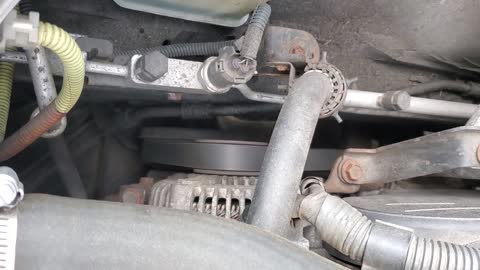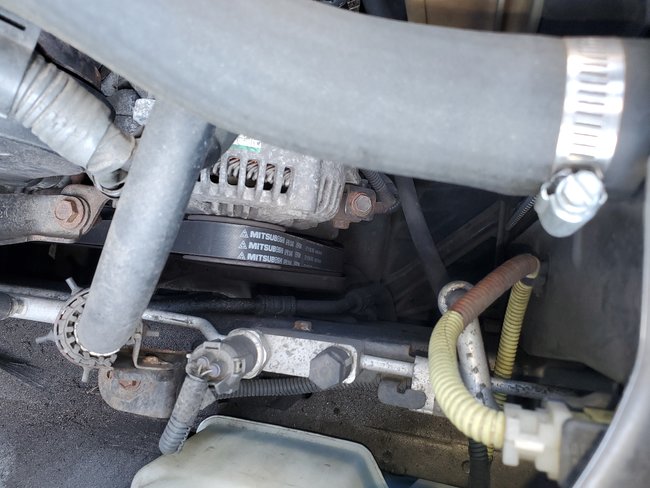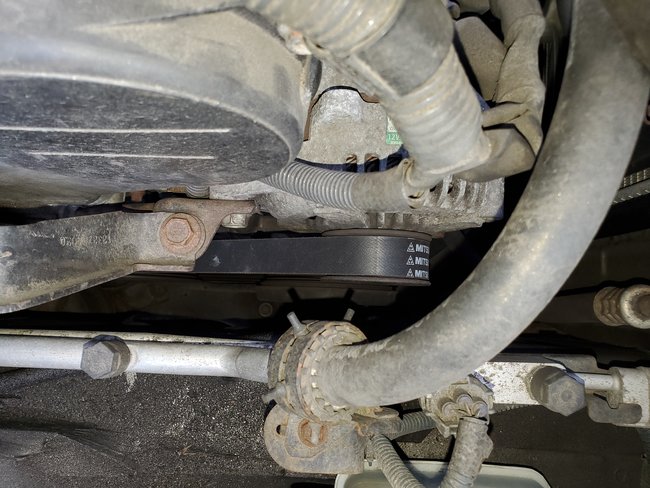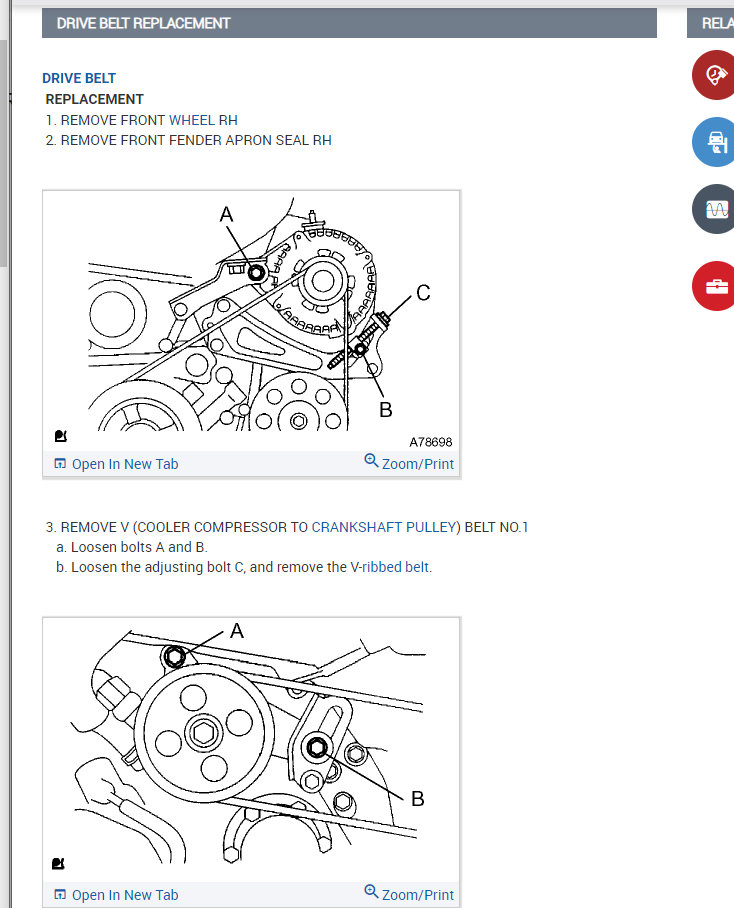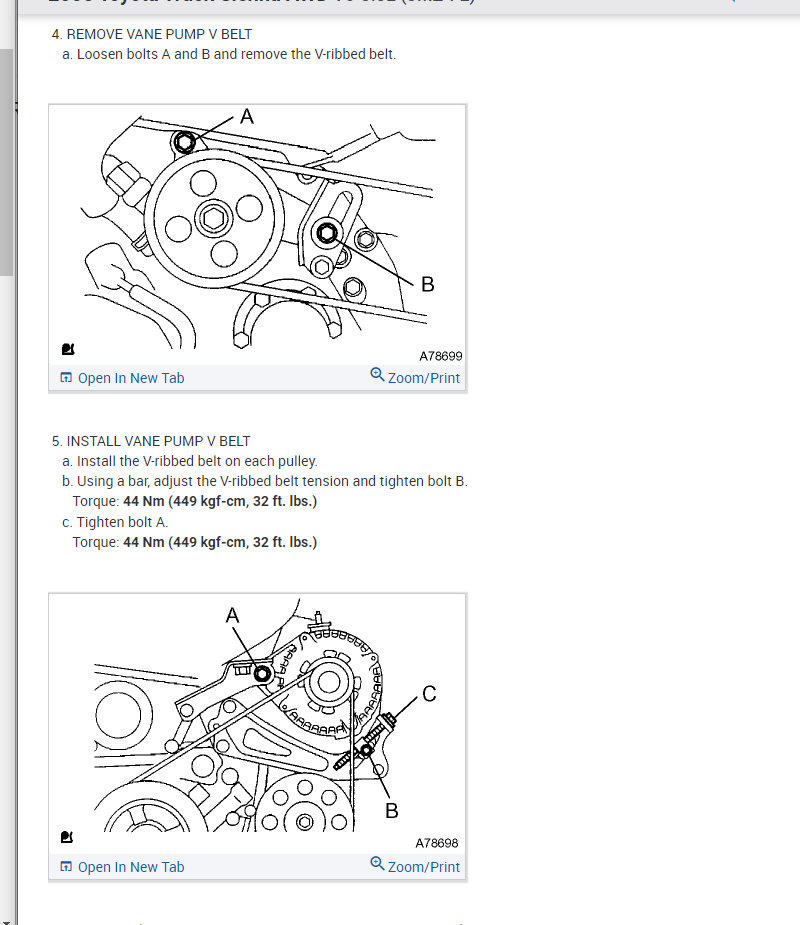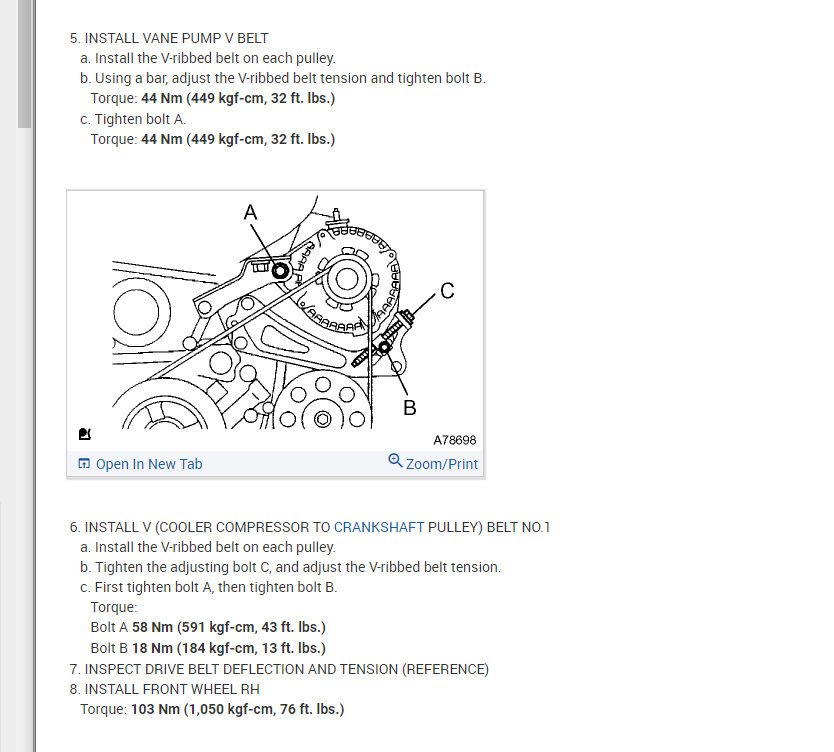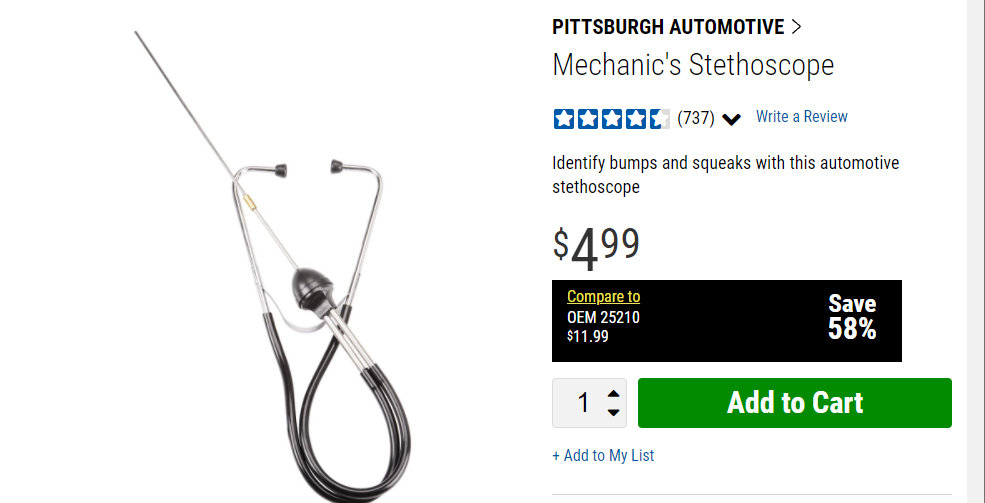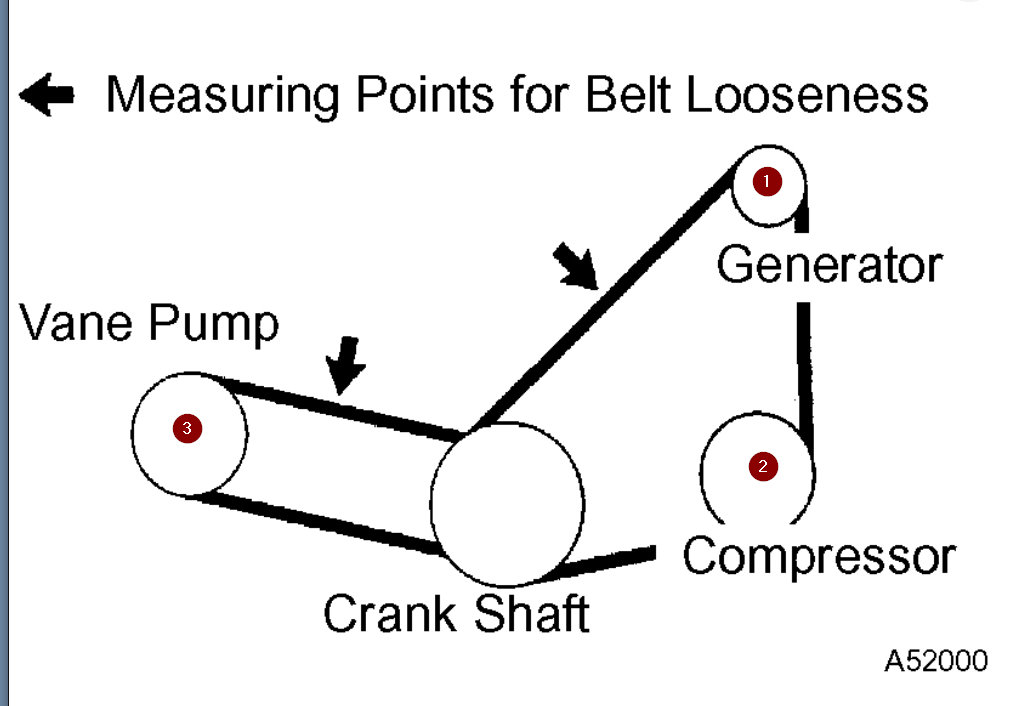Friday, October 8th, 2021 AT 1:54 PM
Timing belt replacement
8 Replies
This is known as a drive belt or serpentine belt and only needs to be replaced when it is cracking, making noise, or slipping.
So, if you have not replaced this belt in a while, I would just remove it and inspect the side of the belt with ribs on it and find out if there are cracks in it.
The back side doesn't tell us much, but it looks pretty clean.
Here is a guide that will help with this:
https://www.2carpros.com/articles/replace-serpentine-belt
Below you will find the process from the manual that will help with this.
As for the timing belt. That is to be replaced at 90,000 miles. If it has not been replaced, then we need to go ahead and do that.
Please let me know and we can help with that as well. Thanks
So, if you have not replaced this belt in a while, I would just remove it and inspect the side of the belt with ribs on it and find out if there are cracks in it.
The back side doesn't tell us much, but it looks pretty clean.
Here is a guide that will help with this:
https://www.2carpros.com/articles/replace-serpentine-belt
Below you will find the process from the manual that will help with this.
As for the timing belt. That is to be replaced at 90,000 miles. If it has not been replaced, then we need to go ahead and do that.
Please let me know and we can help with that as well. Thanks
Was this helpful?
Yes
No
Friday, October 8th, 2021 AT 3:22 PM
I am sorry. I heard that and meant to mention it. That is the sound or a bearing that is failing.
First thing I would do to confirm it is removing the belt and run the engine for a minute and make sure that grinding/rattling noise is gone.
Then put the belt back on and use a long screwdriver touch it to each pulley (in a safe spot that it won't get caught in the pulley) and then touch your ear to the handle of the screwdriver.
The place that this noise sounds the loudest is the pulley that is failing.
Here is a guide that talks about this type of noise:
https://www.2carpros.com/articles/vehicle-scraping-noise
You can also get a mechanics stethoscope from most any parts store to listen to this as well and that would be more accurate but not required. I posted a picture below of this.
Let us know what you find with this and if you have other questions on it.
If you remove the belt and the noise is still there then that noise is inside the timing cover at which point, I would go in and change the belt if you have not done it yet and inspect everything while you are there.
First thing I would do to confirm it is removing the belt and run the engine for a minute and make sure that grinding/rattling noise is gone.
Then put the belt back on and use a long screwdriver touch it to each pulley (in a safe spot that it won't get caught in the pulley) and then touch your ear to the handle of the screwdriver.
The place that this noise sounds the loudest is the pulley that is failing.
Here is a guide that talks about this type of noise:
https://www.2carpros.com/articles/vehicle-scraping-noise
You can also get a mechanics stethoscope from most any parts store to listen to this as well and that would be more accurate but not required. I posted a picture below of this.
Let us know what you find with this and if you have other questions on it.
If you remove the belt and the noise is still there then that noise is inside the timing cover at which point, I would go in and change the belt if you have not done it yet and inspect everything while you are there.
Was this helpful?
Yes
No
Saturday, October 9th, 2021 AT 6:05 AM
The bearing is part of each of the pulleys. So, on all pulleys there is a sealed bearing that when they get water intruding in them, they start to rust and eventually start making noise then will fail.
So, we need to find which pulley this is and replace the pulley which comes with the bearing if possible. However, depending on which one it is, you may not be able to get just the pulley like the tensioner.
Let me know what you find, and we can go from there. Thanks
So, we need to find which pulley this is and replace the pulley which comes with the bearing if possible. However, depending on which one it is, you may not be able to get just the pulley like the tensioner.
Let me know what you find, and we can go from there. Thanks
Was this helpful?
Yes
No
Saturday, October 9th, 2021 AT 10:53 AM
Check out my prior post. We need to use what is called a stethoscope and listen to each of the pulleys. I put a picture of one for your review.
You actually have two belts. One for the alternator and compressor. A second for the power steering pump.
I put a picture of this below. Each of these pulleys have a bearing and we need to listen to each and see where this noise is the loudest.
Also, you need to start with removing the alternator belt and see if the noise goes away. If it does not, then the power steering pump pulley is the issue.
If it does not go away, then your alternator is most likely the issue, but it could be the compressor which is why we need to test it as described.
You actually have two belts. One for the alternator and compressor. A second for the power steering pump.
I put a picture of this below. Each of these pulleys have a bearing and we need to listen to each and see where this noise is the loudest.
Also, you need to start with removing the alternator belt and see if the noise goes away. If it does not, then the power steering pump pulley is the issue.
If it does not go away, then your alternator is most likely the issue, but it could be the compressor which is why we need to test it as described.
Was this helpful?
Yes
No
Sunday, October 10th, 2021 AT 3:50 PM
Related Timing Belt Replace/Remove Content

Serpentine Belt Replacement Chevrolet

How to fix an engine that wont start

Serpentine Belt Replacement Acura MDX
